•Importation gulps $1.6bn annually
From Okwe Obi, Abuja
From agric industry records, Nigeria boasts one of the largest livestock populations in West Africa, with an estimated 20.9 million cattle, 60 million sheep and 1.4 million goats.
But despite these abundant ruminants, milk still eludes the country, a worrisome paradox that has challenged the country for decades.
A former Minister of Agriculture and Rural Development, Audu Ogbeh, once identified cattle malnourishment as a key factor behind Nigeria’s dairy insufficiency nightmare, explaining that the excessive trekking of livestock through pastoral nomadism, negatively impacts their health and productivity.
However, on World Milk Day 2025, the incumbent Minister of Livestock Development, Idi Mukhar Maiha, pointed to cattle rustling as a significant contributor to the persistent milk deficit.
The event, themed “Let’s Celebrate the Power of Dairy in Nigeria,” was jointly sponsored by Nestlé Nigeria.
According to Maiha, Nigeria consumes about 1.6 million metric tonnes of milk every year, but only produces 700,000 metric tonnes locally.
He said the remaining 60 percent is imported at a cost of over $1.5 billion annually, describing it as a “serious drain on our economy.”
He lamented that with the importation, the country’s national milk consumption still lags behind global and continental averages, especially with the recommendation of the World Health Organization which said that at least a person should consume 210 litres per year.
He said; “we average just 8.7 litres per person, which is barely enough for tea throughout the rainy season.”
The minister disclosed that the Ministry has developed and validated the National Strategy and Action Plan on Animal Genetic Resources, with support from the FAO.
He explained: “This plan lays out our path to breed improvement, which is an essential step in ensuring high-yield dairy animals that can compete globally. The National Animal Production Research Institute, Shika, has been assessed and a cogent plan has been developed for the resuscitation and full optimisation of the institute.
“We have already produced digital maps of grazing reserves and created model plans for their development; the cooperation of state governments is pivotal here as elsewhere.
“Provision of pasture, water, security and other facilities in grazing reserves will encourage settlement of pastoralists, improved productivity and reduction of farmer herder conflicts.
“We are also liaising with multinationals and foreign governments for the rapid expansion of our beef and dairy industries.”
Also, he pointed out that animal identification and traceability “is a critical tool in animal production, disease management and traceability.”
To this end, he said animals would be tagged and robust digital platforms would be used to track animals and trace animal products, explaining that the initiative would reduce conflicts and open access to international trade for Nigeria.
Furthermore, he clarified that “Nigeria is not just trying to catch up with global dairy trends; we are positioning ourselves to lead. Our goal is ambitious but achievable, to double Nigeria’s milk production from 700,000 metric tonnes to 1.4 million metric tonnes annually in the next five years.
“And with over 20.9 million cattle, 60 million sheep, and 1.4 million goats already in Nigeria, we are not starting from zero, we are building from strength.”
On his part, the Managing Director and Chief Executive Officer of Nestlé Nigeria, Wassim Elhusseini, announced a partnership with the Ministry of Livestock Development to launch a dairy technical skills development programme.
“Nestlé is pleased to announce an ongoing collaboration with the Federal Ministry of Livestock Development to launch a Dairy Technical Skills Development Program.
“In addition to our global dairy experience, Nestlé has built capacity to provide targeted training programs on best practices in dairy farming adapted to the Nigerian context,” he said.
Moreso, Head of the European (EU) Delegation to Nigeria, Ambassador Gautier Mignot, said the EU would help Nigeria develop its dairy production.
“We believe in building a future where Nigeria dairy farmers are equipped with the right tools, knowledge and support systems to thrive.
“Over the past decades, we have demonstrated through our dairy development program, which integrates thousands of local farmers, delivers sustainable uptake models and improves livelihoods across the country.
“This work we did provides enough to reflect on the progress we have made and more importantly, to align our next steps toward a more resilient future for Nigeria.
“We must continue to expand our dairy communities, accelerate access to financing, improve infrastructure and promote dairy consumption through nutrition education.
“Please underpin our robust stance ready to collaborate with stakeholders at every level to unlock the full potential of Nigeria’s dairy economy.
“We have to work collectively to achieve a private sector built on quality, innovation and inclusion.”




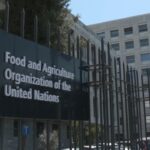


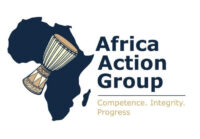
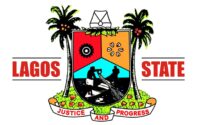


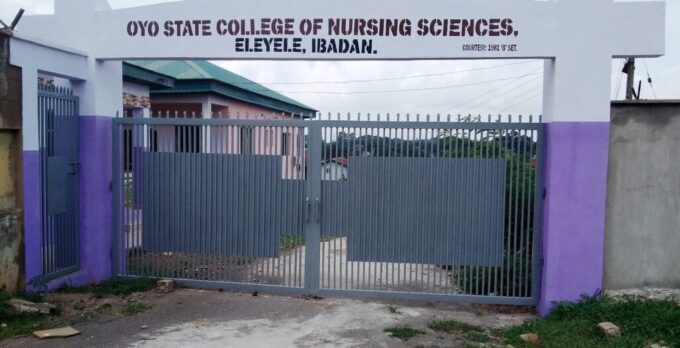



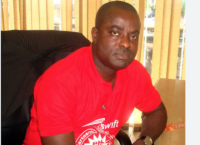
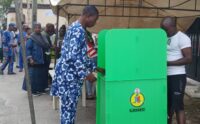
Leave a comment